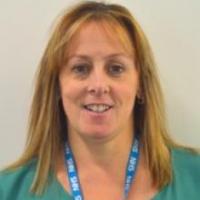Rapid Response Team: A Nurse-led Alternative to Psychiatric Hospital Admission
The Rapid Response Team (RRT) is a nurse-led community mental health team offering an alternative to hospital admission for older people by providing intensive mental health treatment and support at home.
Intensive Home Treatment teams have long been in place for adult mental health users, but RRT is the first seven days a week crisis team for older people in Scotland and aims to address inequalities between adult and older adult mental health services. The RRT prides itself in taking a flexible person-centred approach to care and will assess each person’s needs individually to create a unique care plan in line with the patient’s own view of what recovery looks like for them.
The creation of the RRT has allowed older people to have access to the right service at the right time so there is no longer a waiting list for inpatient beds. The service has also improved patient pathways by providing in-reach to the older people’s acute mental health admission wards at the Royal Edinburgh Hospital, thus, allowing people to be discharged to their home more rapidly.
In its first two years, 65 per cent of referrals were prevented from admission to hospital and 232 early discharges were facilitated. The average length of stay in the functional assessment wards has reduced by 44 per cent and in the dementia assessment wards by 27 per cent.
A measure of the RRT success has been a two-thirds reduction in the use of Emergency Detention Orders. This suggests improved access to specialist assessment, effective joint working with Mental Health Officers (MHO), and planned admissions.
Despite being a nurse-led service, a great deal of the team’s success with the initiative has relied upon the establishment of strong collaborative working relationships across the health and social care system, including MHOs, social work, community mental health teams, GP practices, and inpatient wards (in both mental health and acute hospitals). Engaging and utilising third sector services such as advocacy, befrienders and food banks, to build a support system which suits each individuals needs, has been essential.
Building these relationships required the team, and established services, to work in new ways and address any challenges.

Alex McMahon
Chief Nursing Officer, Scottish Government

Karen Ritchie
Senior Charge Nurse, NHS Lothian

Carla Rafferty
Community Mental Health Nurse, NHS Lothian
